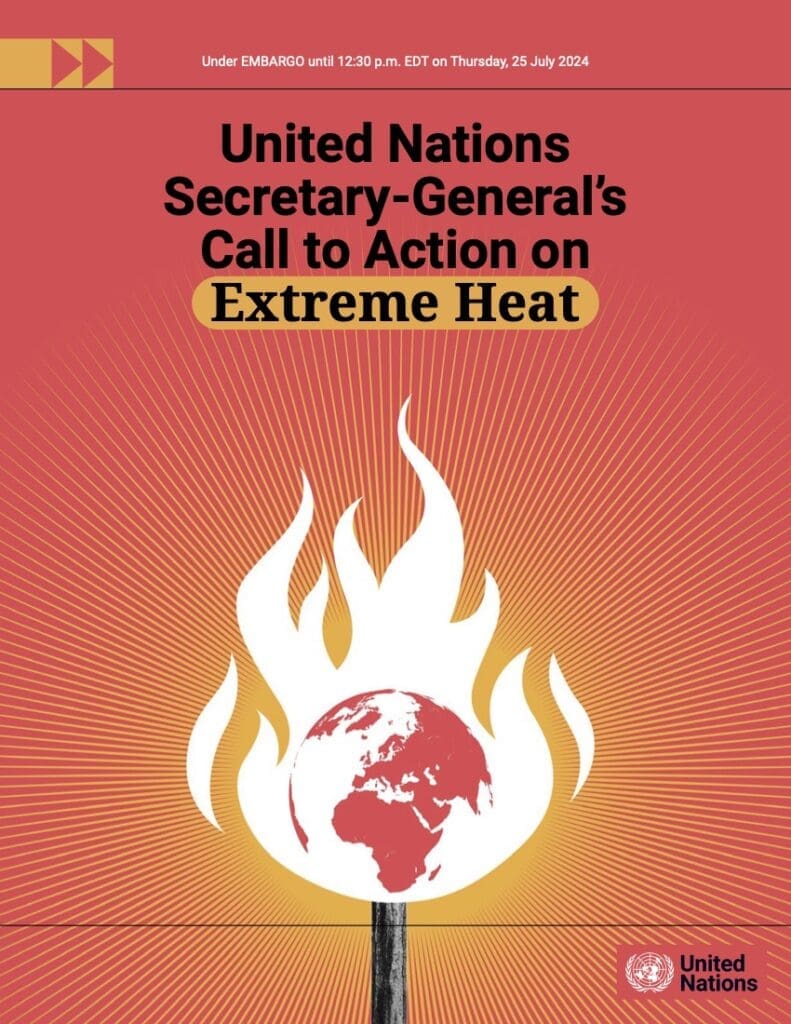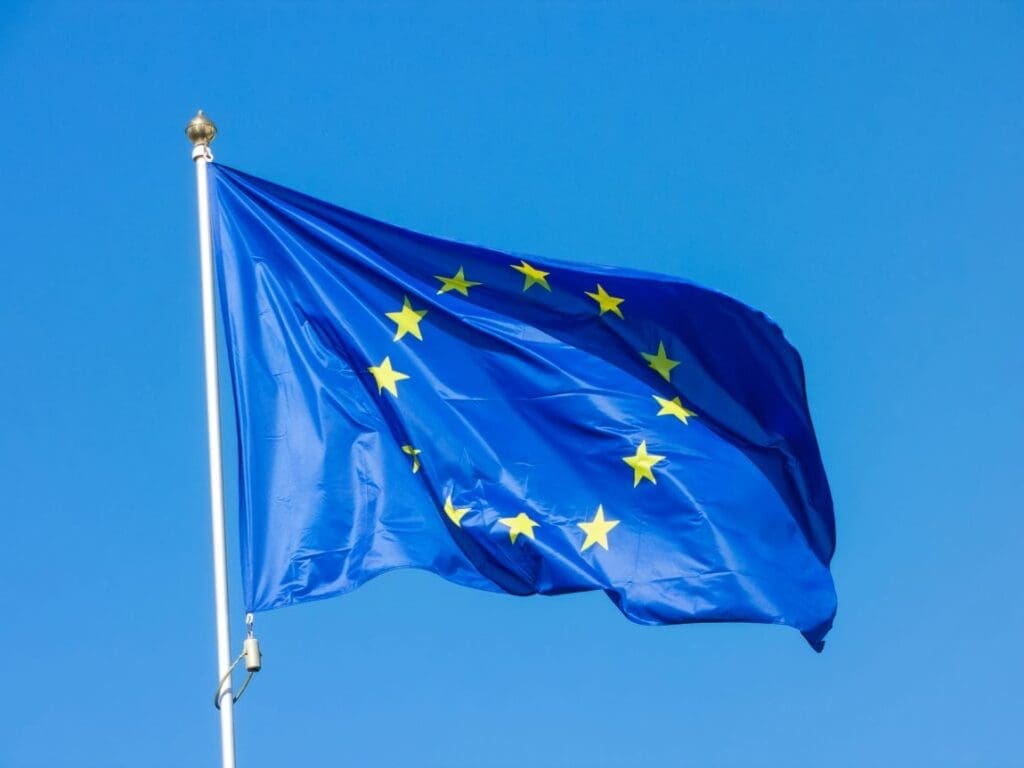
The World Meteorological Organization (WMO) has joined nine other specialized United Nations entities in supporting UN Secretary-General António Guterres’ Call to Action on Extreme Heat. This initiative addresses the increasing threat extreme heat poses to socio-economic and environmental well-being globally.
Unprecedented heat records
The call to action was announced during a week that saw Earth experiencing its three warmest days in recent history. According to the ERA5 dataset from the European Union’s Copernicus Climate Change Service (C3S), the daily global average temperature reached record highs, peaking at 17.16°C on July 22, 2024. On 23 July, the preliminary value was 17.15°C. On 21 July, the temperature record was 17.09°C. All three days were warmer than the previous record of 17.08°C, set only last year on 6 July 2023.
“Earth is becoming hotter and more dangerous for everyone, everywhere,” said Guterres. “Billions of people are facing an extreme heat epidemic, wilting under increasingly deadly heatwaves, with temperatures topping 50 degrees Celsius around the world.”
Multi-sectoral impact
The UN Secretary-General’s Call to Action on Extreme Heat brings together the diverse expertise and perspectives of ten specialized UN entities (FAO, ILO, OCHA, UNDRR, UNEP, UNESCO, UN-Habitat, UNICEF, WHO, WMO) in a first-of-its-kind joint product, underscoring the multi-sectoral impacts of extreme heat. Earth is becoming hotter and more dangerous for everyone, everywhere. Billions of people around the world are wilting under increasingly severe heatwaves driven largely by a fossil-fuel charged, human-induced climate crisis. Extreme heat is tearing through economies, widening inequalities, undermining the Sustainable Development Goals, and killing people.
Heat-health action plans
The Call to Action on Extreme Heat emphasizes the need for urgent and concerted international cooperation in four critical areas:
- Caring for the vulnerable
- Protecting workers
- Boosting resilience of economies and societies using data and science
- Limiting temperature rise to 1.5°C by phasing out fossil fuels and scaling up investment in renewable energy
Preventative measures and global cooperation
The initiative underscores the importance of integrated heat-health action plans as part of the Early Warnings for All initiative. It aims to ensure at-risk populations receive timely alerts with actionable information and sources of assistance. Strengthening National Meteorological and Hydrological Services (NMHSs) is also highlighted as crucial.
WMO Secretary-General Celeste Saulo remarked, “Our Earth is running an unprecedentedly high fever. In addition to this week’s three new global daily temperature records, we have seen monthly temperature records for 13 successive months.”
Saulo pointed out that extensive heatwaves have affected communities on every continent, with at least ten countries recording temperatures above 50°C in multiple locations this year. Many other locations have experienced daytime maximums exceeding 40°C and dangerously high minimum overnight temperatures.
Societal impacts of extreme heat
Extreme heat exacerbates risks of wildfires, droughts, water shortages, and food insecurity. Managing these risks requires multi-sectoral cooperation. The WMO, UNDRR Center of Excellence for Disaster and Climate Resilience, and the Global Heat Health Information Network are working with various UN agencies and the International Federation of the Red Cross and Red Crescent Societies to enhance integrated planning and resource allocation.
The 2023 WMO State of Climate Services for Health report showcases successful case studies of integrated climate and health action, including early warning systems and community-based heat risk awareness campaigns.
Urgent action required
The call to action stresses the urgent need for a global strategy to address extreme heat. This includes protecting vulnerable populations, implementing effective occupational safety measures, and investing in renewable energy to limit temperature rise.
“The world needs a strategy to deal with heat that mobilizes governments, policymakers, and all stakeholders to act, prevent, and reduce heat risk, increase resilience to heat, manage extreme heat crises, and mitigate its worst impacts,” concludes the Call to Action.
***
The World Meteorological Organization (WMO) is a specialized agency of the United Nations responsible for promoting international cooperation in atmospheric science and meteorology.
WMO monitors weather, climate, and water resources and provides support to its Members in forecasting and disaster mitigation. The organization is committed to advancing scientific knowledge and improving public safety and well-being through its work.
More information: Secretary-General’s Remarks | Call to Action on Extreme Heat (pdf) |
Article Source:
Press Release/Material by WMO
Featured image credit: Javier Miranda | Unsplash




